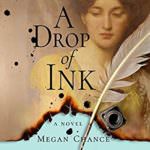This is the second book in a trilogy about Emma of Normandy who was Queen of England at the beginning of the eleventh century, some decades before the Norman invasion of 1066. This is a little-known period of history and not one often come across in historical fiction, but Patricia Bracewell brings it to vibrant life, skilfully fleshing out historical figures and events to create a compelling and complex story.
Life in Anglo Saxon England was every bit as turbulent and full of intrigue as in the more familiar Tudor period; and in fact, I’d say that anyone who enjoys historical fiction set in that period is likely to enjoy this for the same reasons. The Price of Blood opens in 1006, when England was beset by threats from without – the Viking raiders – and within – powerful magnates in the North, who were far enough from the centre of power in the South as to be laws upon themselves and whose loyalty to the king was not always absolute. And then there is the king himself, who seems to be his own worst enemy, suspecting his sons of wanting to depose him and surrounding himself with toadies who give him bad advice, his mounting fears and insecurities leading to a deep-seated paranoia and mistrust of any who attempt to gainsay him.
Emma’s story was begun in the previous book, Shadow on the Crown, when she married King Æthelred (widely known now as “the unready”) who wed her only in order to cement the French alliance he hoped would stop the Vikings mounting raids on the South coast of England. He looks upon her merely as a broodmare and is disdainful, dismissive and often outright cruel to her. By the time The Price of Blood begins, Emma has born Æthelred a son, Edward, but her growing popularity among the people and at court cause him to resent her and to despise her even more. But despite the mistreatment she endures, Emma retains her dignity and continues to put the welfare of England above her own desires. The birth of her son gives her a purpose – to keep him safe, she will have to make alliances and formulate stratagems of her own, which could prove every bit as dangerous as the threats being posed to the country from external forces.
Because this is the second book in the series, and I haven’t yet read the first (although I plan to do so) I did feel there were a few pieces of the puzzle missing – although there really is enough in the story to enable the listener to get a sense of what has gone before. The story is told from four different points of view – thankfully in the third person! (so much historical fiction of late has a first person viewpoint, which I find overly limiting) – Emma, Æthelred, Althestan, his eldest son, and most likely successor, and the Lady Elgiva. Elgiva is the daughter of one of Æthelred’s northern magnates and the king’s former mistress, who, in this book, is married to Cnut, the son of one of Æthelred’s most hated enemies. In fact, Emma and Elgiva provide an interesting dichotomy in the story; both are women who have to fight for agency and their place in what is very much a man’s world, but they do so from opposite ends of the spectrum. Emma is strong and determined, her selflessness and adherence to duty truly admirable, whereas Elgiva is more of a Lady Macbeth type, one who uses guile and sex to get what she wants.
The differing viewpoints of the two male protagonists are also fascinating. Æthelred’s method of preserving his seat on the throne is to “divide and rule”, to sow dissent among the nobles and his sons, setting set faction against faction. His eldest son, Athelstan is the focus for the many disgruntled nobles who see Æthelred as a threat to England’s security and are urging Athelstan to depose him before his indecision and reliance on bad advice see the country falling to the Danes. Athelstan is torn – he knows the danger his father poses to England, yet his innate sense of honour and loyalty will not allow him to take such a step without compunction. All this is further complicated by his love for Emma, a love which is reciprocated, but can never be.
Not a great deal is known of Emma’s life, so anyone planning to listen to this (and/or the preceding book) needs to realise that while the author has meticulously researched the period and has based her book very firmly on real historical events, Emma’s characterisation and her story are largely fictionalised. That’s not a criticism, however, because in Emma, Ms Bracewell has created a truly memorable character, one who grows from the naïve girl who came to England in order to forge an alliance, to a woman whose courage and compassion inspire the respect and devotion of the English people, and whose determination to preserve the kingdom for her son sees her emerging from the shadows to become a wily political player in her own right.
Heather Wilds is a narrator I’ve listened to quite a lot and whose performances I have, for the most part, enjoyed. She’s a good fit for this book, because her lovely, natural contralto voice has the kind of gravitas that is needed to carry off such a meaty, complex story, while she is also able to portray all the different characters appropriately and convincingly. The book has a large secondary cast featuring Æthelred’s sons, Emma’s waiting women, Elgiva’s father and brothers, the Danish King Swein and his son Cnut; and Ms Wilds differentiates effectively between them all by using a variety of accent, register and timbre. The narrative is well-paced and expressively read, although once again, in both narrative and dialogue, there are several times she takes breaths mid-sentence or gives phrases an odd inflection, which is something of a vocal tick of hers. Fortunately, the story is sufficiently compelling as to allow the listener to if not ignore, then to at least get past those slight imperfections and concentrate on the story.
There are a couple of minor production issues in the copy I listened to; one is that some of the edits between paragraphs are very obvious, and another is that in Chapter 23, between 15 and 16 minutes in, there is a repeated line.
Overall, The Price of Blood is an absorbing piece of historical fiction about a little-known queen, wrapped up in an accomplished performance from Heather Wilds. It’s a thoroughly engrossing listen and I will certainly be looking out for the final book in the trilogy.
Caz
Narration: B
Book Content: A
Steam Factor: Glad I had my earbuds in (but very tame)
Violence: Minimal – mostly “off screen”
Genre: Historical Fiction
Publisher: Tantor Audio
The Price of Blood was provided to AudioGals by Tantor Audio for review.




